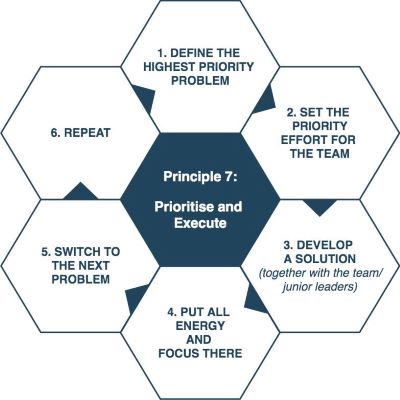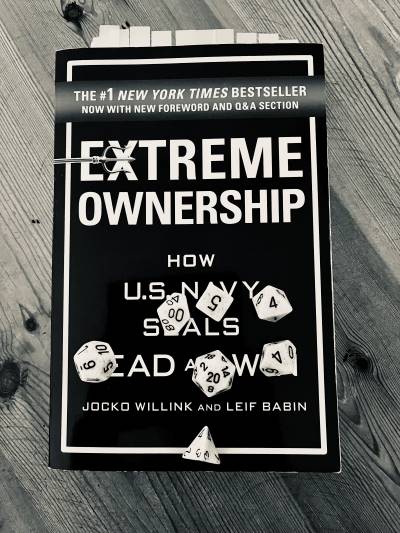In the world of roleplaying games (RPGs), the principles of leadership and ownership might seem like an odd fit. However, delving into Jocko Willink’s book, “Extreme Ownership,” reveals surprising parallels between military leadership and the realm of dungeons, dragons, and storytelling. Let’s explore three key takeaways from Extreme Ownership and how they can be seamlessly applied to running roleplaying games.
Takeaway 1: Own the Narrative – You Are the Dungeon Master (DM):
In the world of RPGs, the Dungeon Master is the linchpin, crafting the narrative, embodying non-player characters (NPCs), and creating the world in which the players immerse themselves. Extreme Ownership emphasizes the importance of taking ownership of every aspect of a mission, and similarly, a DM must own the narrative of the campaign.
As a DM, take responsibility for the pacing, the atmosphere, and the engagement of your players. If the story isn’t resonating, or if players seem disengaged, it’s on the DM to adjust and adapt. This ownership ensures that the players have an immersive and enjoyable experience.
This doesn’t mean that you have to keep a draconian grip on the game. That would ruin the fun for everyone. Instead taking ownership of the experience at the table, engaging players and running with their ideas will keep them returning to your game over and over again.
Takeaway 2: Prioritize and Execute – Managing Campaign Dynamics:
“Prioritize and Execute” is a mantra from Extreme Ownership that stresses the importance of focusing on the most critical tasks first. In the context of RPGs, this translates into effective campaign management. Whether it’s planning encounters, developing plotlines, or managing in-game time, a DM must prioritize elements that enhance the overall experience.
Avoid getting bogged down in minor details at the expense of the overarching narrative. By prioritizing and executing key campaign elements, a DM can ensure a well-paced and engaging story that captivates the players.
This aspect of Extreme Ownership really helped me as a leaders and as a DM. I had a habit of over planning my campaigns, which while fun was very time consuming. By prioritizing certain elements of my planning and keeping bullet points for villains, locations and motivations I could run games with more flexibility and have more time doing other things.

Takeaway 3: Decentralized Command – Empower Your Players:
Extreme Ownership emphasizes the concept of decentralized command, empowering individuals at all levels to make decisions that contribute to the overall mission. Translating this to RPGs means empowering your players to contribute to the storytelling process.
Encourage players to take ownership of their characters’ stories, giving them agency in shaping the narrative. This not only enhances player engagement but also lightens the DM’s load, fostering a collaborative storytelling experience. When players feel a sense of ownership over their characters and the unfolding narrative, the game becomes more dynamic and enjoyable for everyone involved.
From the perspective of RPGs, I think this could be the most important element. I love to foster collaborative storytelling with my players. Often this means that campaigns can move into unexpected territory. But it is always fun. Remember Takeaway 1 above. Taking ownership of the experience at the table means that if everyone is having fun you are winning. Therefore, a campaign moving in a direction you hadn’t considered is a massive win.
This approach has led to my players and me jointly creating and playing multiple generations of campaigns in our shared world of Salkire. This rich tapestry of gameplay over years of real time play would not be possible without this collaborative decentralized command of the story.
Final thoughts on Extreme Ownership
Jocko Willink’s “Extreme Ownership” offers a unique lens through which to view the art of running roleplaying games. By applying the principles of ownership, prioritization, and empowerment, Dungeon Masters can elevate their campaigns to new heights. Just as a military leader takes charge of a mission, a skilled Dungeon Master takes charge of the narrative. Always creating an immersive and unforgettable experience for players. So, the next time you sit behind the screen, remember the words of Jocko Willink and take extreme ownership of your roleplaying adventure.

